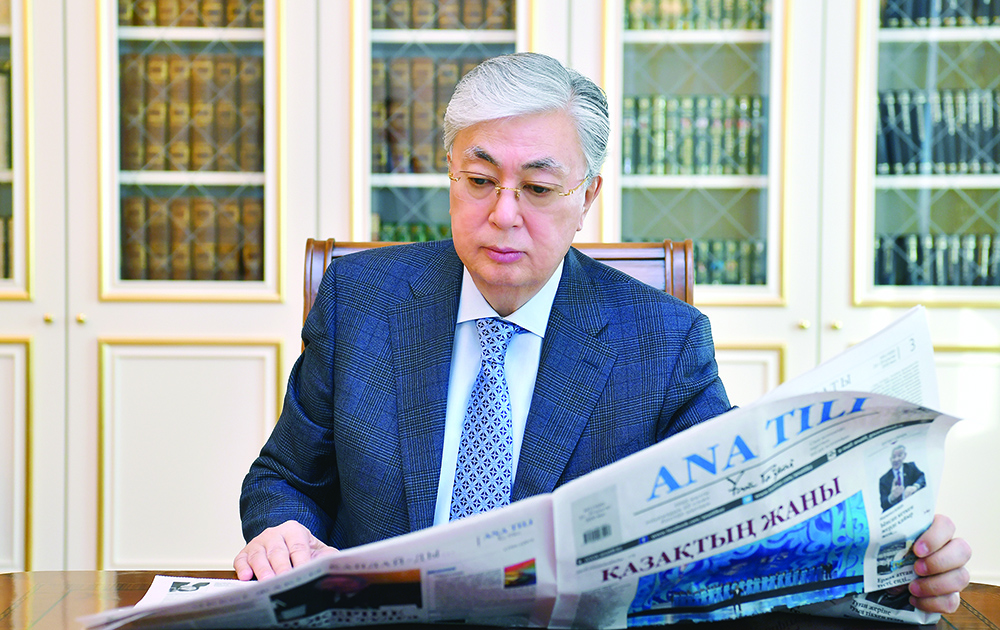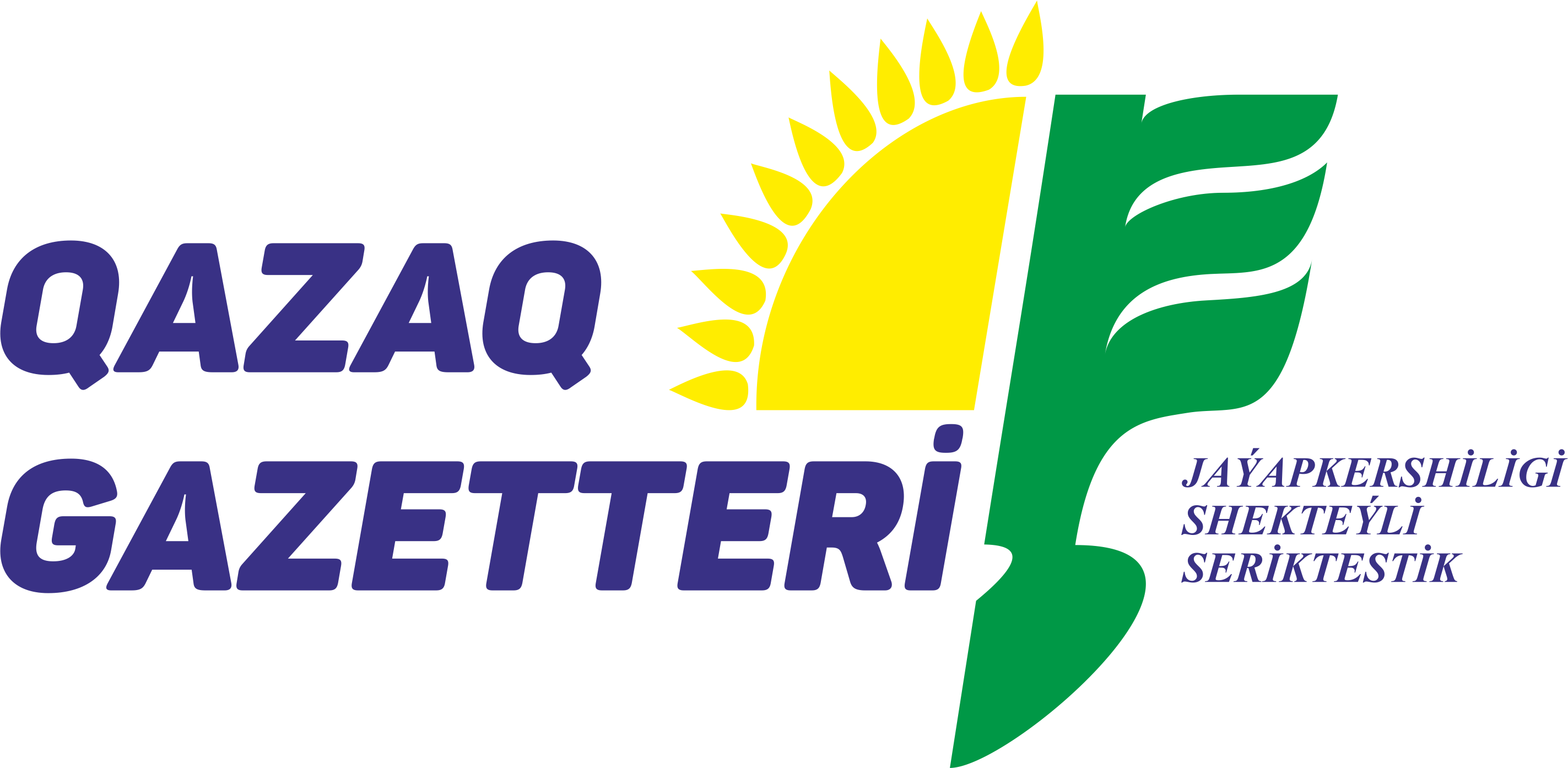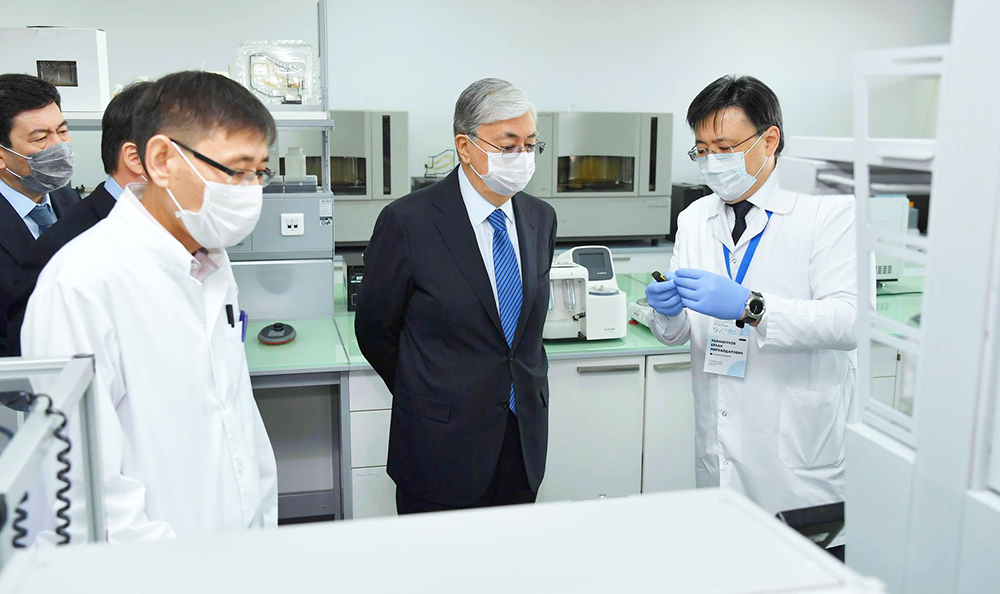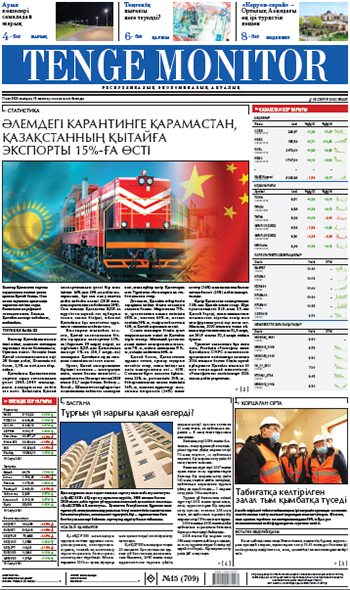- Билік
- 02 Шілде, 2020
President Tokayev: The linguistic problem is a matter of great political importance

President of Kazakhstan Kassym-Zhomart Tokayev recently gave an interview to the Ana Tili (Mother Tongue) weekly. In the course of conversation, he touched upon a broad range of issues, including the current COVID-19 epidemiological situation, the status of Kazakh as a State language, and Kazakhstan’s position on the international stage amid the coronavirus pandemic.
He also mentioned the new law on peaceful gatherings, the outcomes of the first year of his presidency, as well as the role of ethical and ethnic values in an increasingly globalized world.
While answering the question «Aren’t we losing the battle against infection?», President Tokayev said: «The pandemic has actually disrupted the normal patterns of behavior not only in our country, but worldwide. As we can see, even the most developed states have been powerless in the face of this infectious disease outbreak. Leading European countries, the United States, Asian giants – China, Japan, South Korea, and many others have faced considerable difficulties in handling the extremely complex epidemic situation inflicted on their population.
I find the allegations that «we are losing the fight against the epidemic outbreak, and the Government has failed in its efforts to keep the situation under control» being incorrect. As you know, three infectious-disease hospitals were quickly constructed and commissioned in the cities of Nur-Sultan, Almaty and Shymkent. The relevant health institutions in other regions were provided with the necessary equipment. Our doctors have the relevant knowledge to treat patients. Today, the medical community including doctors, nurses and the medical staff are selflessly fighting this disease day and night. The State for its part has allocated the funds necessary to fulfill the task.
In considering the subject, we need to remember that those in power are just people, like us. Just like everybody else. The officials charged with the particular responsibilities are, as such, required to meet with citizens so they go on business trips throughout the country, and they may become infected. And such cases actually do occur. Those, caught up in situations like that, got sick. And now they are receiving appropriate treatment. Around 15 people from among the heads of various authorities became sick with the disease.
According to current statistics, the total number of people infected with COVID-19 in the country has reached nearly 20,000. Most of them are ordinary citizens. It’s not a question of how this or that person got infected. Conditions must be created that would allow our fellow citizens to heal and recover and avoid complications. Those who got sick should not divided into officials and regular people. As the saying goes, «we are all on the same ship».
We all live in the same country, we all breathe the same air, we all experience the same problems. It therefore follows that no one can hope to fully and effectively defend himself from this disease. We all live on the same planet, so you can’t just sit back thinking that the disease will not spread here from other countries. A pandemic does not recognize inter-state borders. Only by taking care of ourselves and our loved ones will we be able to defend ourselves from the disease. I therefore urge my fellow citizens to strictly follow the quarantine regulations, take seriously sanitary and hygienic requirements. This is a passing phenomenon, the difficulties are temporary. We must pay special attention to the question of how we will continue to develop, what we will do after the pandemic and the economic crisis come to an end».
A further question was asked regarding the State language issue. It has been formulated as follows: «Life is an evolving process. And nobody will argue with this. I would like to take this opportunity to raise a number of recently accumulated questions, which concern our future. In your first Address to the people of Kazakhstan, you specifically focused on expanding the scope of the Kazakh language. As you know, the Ana Tili national weekly, which is turning 30 this year, has been covering all issues related to the mother tongue since its inception. In your opinion, what steps should be taken so that our State language would become a language of inter-ethnic communication?».
President of Kazakhstan Kassym-Zhomart Tokayev provided an in-depth response to this question.
«The Ana Tili newspaper keeps bringing up the issue of strengthening the status and expanding the horizon of the Kazakh language in our society, he noted. And its editorial staff does this while consistently defending national interests, with concern for the future of the language. For this, I am sincerely grateful to the journalists working for the newspaper, as well as the writers and scientists involved in the discussion.
It would be a mistake to say that nothing has changed in the field of the Kazakh language over the last thirty years. There of course have been positive changes with respect to its use. This has been noted by outside observers, too. True, some of them are not quite happy with this trend, since they understand that it has become irreversible.
When speaking about the status of the Kazakh language, we should commend the founder of our state, the First President – Leader of the Nation Nursultan Abishevich Nazarbayev. He proclaimed the Independence of Kazakhstan, when the Kazakhs were a minority in their own country. Yet the Kazakh language was declared the official State language under his direct influence.
Indeed, the linguistic problem is a matter of great political importance, and, if improperly handled, it could lead to irreparable consequences for the statehood and security of citizens of the country. We have seen this in the case of Ukraine. A frontal attack with the aim of strengthening the status of the State language and forcibly expanding the range of its use is counterproductive, since it may provoke destabilization of inter-ethnic relationship. Besides, we should take into account the geopolitical context where the land border with the Russian Federation, the longest one in the world, is particularly relevant. Geography is also an important factor in geopolitics.
Well, that doesn’t mean the work should be put on hold. It must be continued, and it must be promoted without much noise, anguish and self-aggrandizement. The case of Uzbekistan might serve as a useful example…
So what needs to be and can be done?
First. Conditions must be created for the Kazakh language to be prestigious and in demand within our society. When appointing to government posts, especially those involving public communications, preference must be given to those persons who, besides being real professionals of their business, is proficient in Kazakh. Civil servants who are unable to conduct discussion and dialogue in the state language at Parliament or press conferences should become an anachronism.
Second. We need to support and encourage representatives of other ethnic groups who have a good command of Kazakh. We need to elect them to Parliament and other representative bodies, appoint them to high posts in the public service system, and promote them with state awards. Such people would help raise the Kazakh tongue to the level of the language of inter-ethnic communication.
Third. There is a need to show tolerance and understanding to those of our compatriots who make phonetic and orthographic mistakes when using the Kazakh language. Indeed, there are quite a few such peoples among youth. We should not make fun of those who seek to speak Kazakh, on the contrary, we must support them.
Fourth. Efforts have to be made in order to improve the content of television and radio broadcasts. They must become the center of public opinion’s attraction and not copy Russian analogues. There should be less cheap entertainment shows, and more programs that serve the national idea, that appeal to the root sources of our being».
Kassym-Zhomart Tokayev, who served as the chairman of the upper house of the Kazakh parliament, took the oath of office on March 20 after the early resignation of Nursultan Nazarbayev, who has been leading the country since 1990. He was elected president of Kazakhstan in a snap election on 9 June 2019 with 71% of the popular vote.
From 1994 to 1999 he served as minister for foreign affairs of Kazakhstan. He was then promoted to deputy prime minister and later the same year prime minister of Kazakhstan. He was prime minister from 1999 until 2002, when he was appointed State secretary – minister of foreign affairs before becoming minister for foreign affairs in 2003.
He remained in the position until January 2007 when he was firstly elected chairman of the Senate of the Parliament of the Republic of Kazakhstan. In 2011, he became director-general of the U.N. Office in Geneva. Then two years later, Kazakhstan’s Senate elected him as its chairman.
Danish AZIM

574 рет
көрсетілді95
пікір


